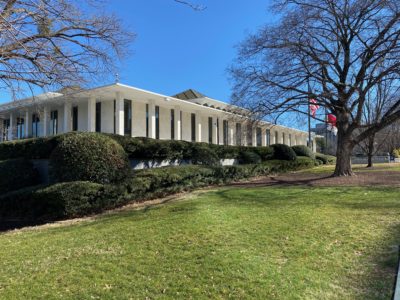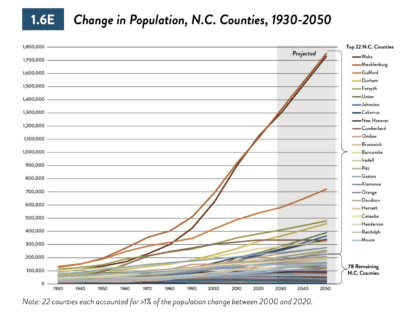
The public-spirited folks of Higher Ed Works have turned their attention to public pre-K-12 education in North Carolina. The nonprofit organization recently published what the French call a cri de coeur under the provocative headline: “Why do we let our General Assembly dismantle public education?”
The cry from the heart comes from John Tate III, who served eight years on the Charlotte-Mecklenburg Board of Education and then eight years on the State Board of Education. A retired banker, Tate appeals directly to the business sector and argues in the language of investment.
North Carolina, he writes, has the economic strength to invest more in public education. But the Republican legislative majority has persisted in cutting personal income and corporate taxes.
“The business community may like lower taxes today,” Tate says. “What will they have to say about the quality of their workforce tomorrow? Is this a sound business strategy?”
Instead of funding public education well enough for schools to succeed, he says, “Our politicians are underinvesting in public education, then using the results as an excuse to criticize.”
It is not insignificant that Tate’s essay is featured by Higher Ed Works, founded to advocate for the state’s public universities and community colleges. Its driving force is Paul Fulton, formerly the top executive of two major corporations, who has served on the University of North Carolina Board of Governors and as dean of the UNC-Chapel Hill School of Business. That Higher Ed Works has expanded its scope sends a message that the state’s future hangs on strengthening its three systems of public education.
Of course, the governance and funding of public education place it within the political context of a fractious time in both state and nation. To his own haunting question — “why do we’’ permit the dismantling? — Tate offers the classic democracy-infused answer: vote.
“It is our fault, you know,” he writes. “We are empowered as a people to change those who govern. We either just don’t care, or don’t know what’s going on, or like what we see. I have to ask you, is this what you want for our children?”
As the next opportunity for North Carolinians to vote, the 2024 elections loom as a dicey and daunting political cycle with the health of democracy itself a core issue. Using the ballot box to support public school funding to achieve a sound basic education would require not only convincing advocacy but also confronting political realities.
One reality is that North Carolina’s statewide and legislative elections take place along with presidential elections. In 2020, Republican Donald Trump carried the state by a narrow 49.9% to 48.6% margin over President Joe Biden — an indication of the competitiveness of the Republican-Democratic divide. How Trump’s multiple indictments for trying to block the peaceful transfer of power play out will largely define the atmosphere of 2024.
Another reality has to do with today’s hyper-polarization and the small segment of truly swing voters. Four years ago, more than 5.4 million North Carolina voters cast a ballot, a super-high turnout driven by the intensity of pro-Trump and anti-Trump partisans. Clearly, most who cast a ballot for Biden or Trump also voted for candidates, including state lawmakers, down the rest of the Democratic or Republican slate, with the implication for education only one of a bundle of factors.
The near-term future of public education will not be determined only when the General Assembly enacts a general fund budget and overrides Gov. Roy Cooper’s vetoes. Legislation on voting rules and redistricting also matters in determining the effectiveness of voting in advancing an agenda for public education.
Consider Ballotpedia’s 2022 legislative competitiveness analysis for North Carolina. Only 33 of the 144 incumbent lawmakers who ran for re-election faced an opponent in a party primary. In the general election, 116 of the 170 seats had a Democratic v. Republican contest — thus nearly a third of the candidates ran uncontested.
The out-pouring of voter participation in a smoothly run 2020 election apparently was too much of a good thing for Republicans now adopting tighter voting-regulation measures. Having perhaps even more bearing on the balance of power in state government will be House and Senate redistricting schemes intended to clinch the Republican veto-proof hold on power in the General Assembly.
In the face of these realities, John Tate’s cri de coeur represents an idealistic call to action in a years-long race that requires a combination of documenting, advocating, and grassroots organizing. Sustaining and strengthening public education is an ever-evolving challenge — as is democracy itself.



